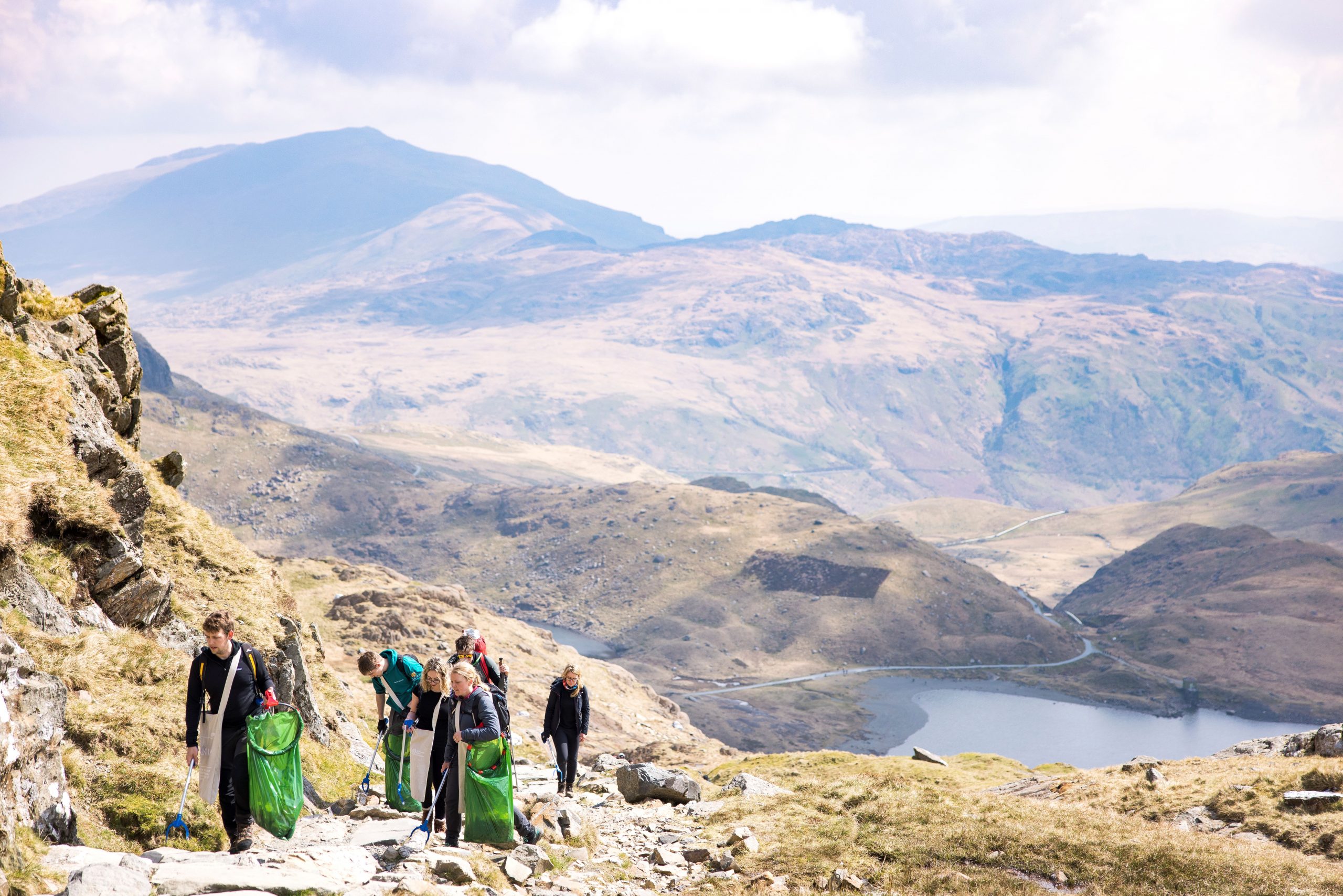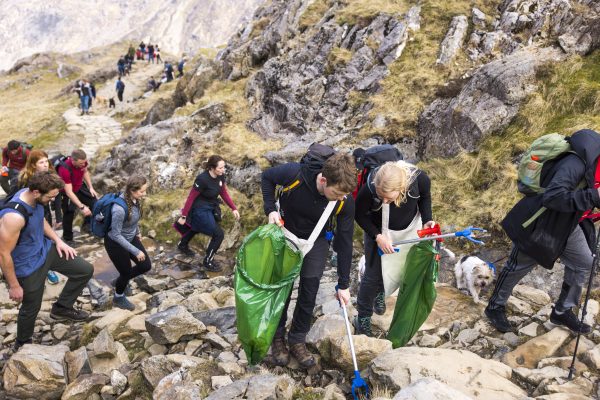Groundbreaking study from Trash Free Trails finds single-use pollution endemic, with Lucozade bottles the biggest perpetrator
There are more than 9 million pieces of rubbish littering up the UK’s rights of way, our wild places are being “choked” by single-use plastic, and it’s going to have big consequences for our health and the ecosystems we ride through.
That’s the dire warning from Trash Free Trails’ latest research into what it calls single-use pollution, the first of its kind to actually look at litter on our rights of way. The researchers were volunteers from local communities and managed to scoop up an astonishing 216,000 pieces of rubbish from more than 5,000km of trails, or 41 items per kilometre.

Nowhere is too remote for Trash Free Trails’ band of litter pickers
“We believe the negative impact litter is having on our ecosystems is one thing to get motivated by,” Rachel Coleman from Trash Free Trails said. “But knowing the impact it has on ourselves and our enjoyment of the outdoors – that’s something policy makers and single use product manufacturers can’t ignore.”
Called the State of our Trails Report, Trash Free Trails drew some frightening consequences from all the litter found on our mountain bike trails and walking paths. Research consistently tells us that connection with nature is important for our mental health, while the presence of rubbish “disrupted” that link and impacted the ability to reap the benefits.

TFT volunteers scoured around 5,000km of trails collecting rubbish and vital data
It gets worse, microparticles from single-use leaching into the environment is a well-known problem, but it’s been hugely overlooked. There have been more than 1,750 academic papers looking at the impact of plastics in marine environments, which is a great step forward. However, none have been conducted with the same focus on recreational trails until now. That’s despite 23 times more plastic pollution escaping into the ground than the seas, according to some estimates (Hortonab et al, 2017).
The Report also highlighted how destructive litter is on animals. Over 20% of recorded “animal interactions” with the stuff ended in death.
It’s not all doom and gloom though, according to Trash Free Trails. For the first time, and thanks to the Report, we’re aware of the scale of the problem and put real numbers on it. This should make it easier to bring pressure on legislators and people’s actions.
The most prevalent item found on the litter picks was a Lucozade bottle
The State of Our Trails Report makes recommendations to the UK Government and industry about what we’re going to do about this problem. TFT recommends a deposit return scheme for single use drinks containers so people are encouraged to return them – the most prevalent item found on the litter picks was a Lucozade bottle.

Trash Free Trails is demanding governement and industry to do more, and asking volunteers to help keep it up!
We also need to integrate outdoor education into the national curriculum, introduce effective accountability from industry regulators on new plastic packaging, and herald examples from new European Green Deal policies that recentre the value of recreational trails, repositioning the importance of better policy to protect them.
“This isn’t just about reducing litter anymore,” Rachel Coleman says. “This is about a complete transformation of our relationships to these environments which are central to our sense of identity and community. If we don’t work to better protect them, who will?”
The State of our Trails Report is supported by Bosch eBike Systems and Bangor University. The study looked at over 1,600 submissions from 4,500 volunteer “Citizen Scientists” collected between July 2020 and August 2023.




